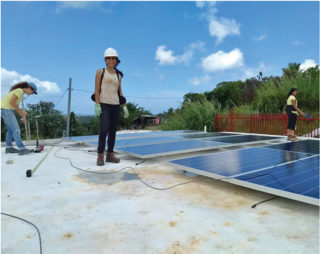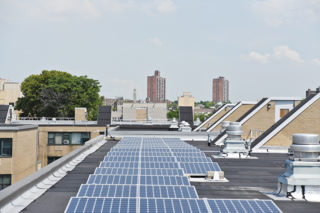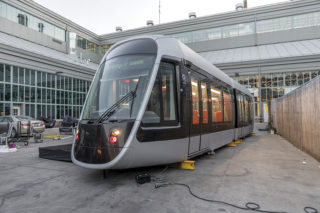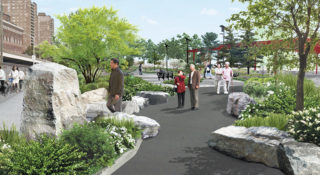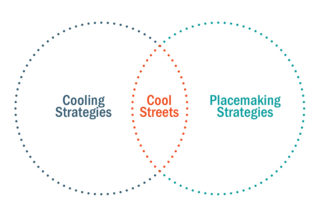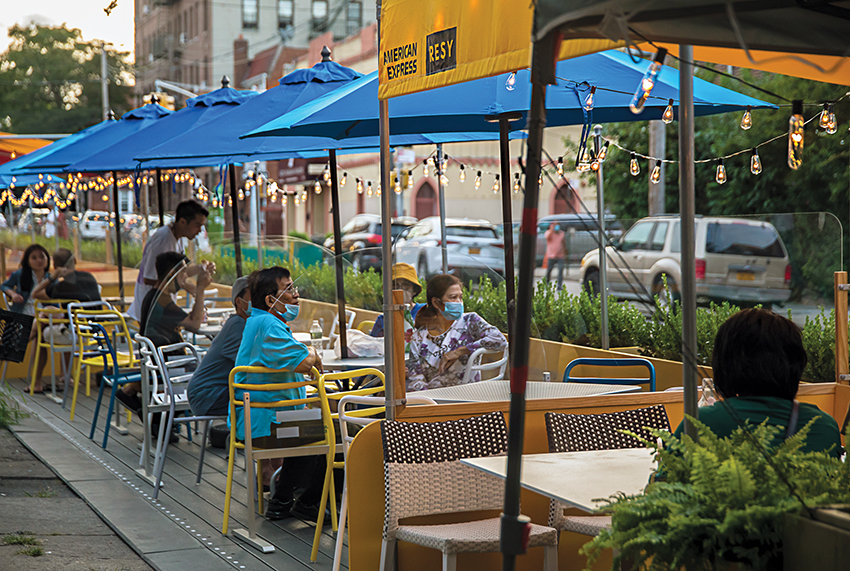
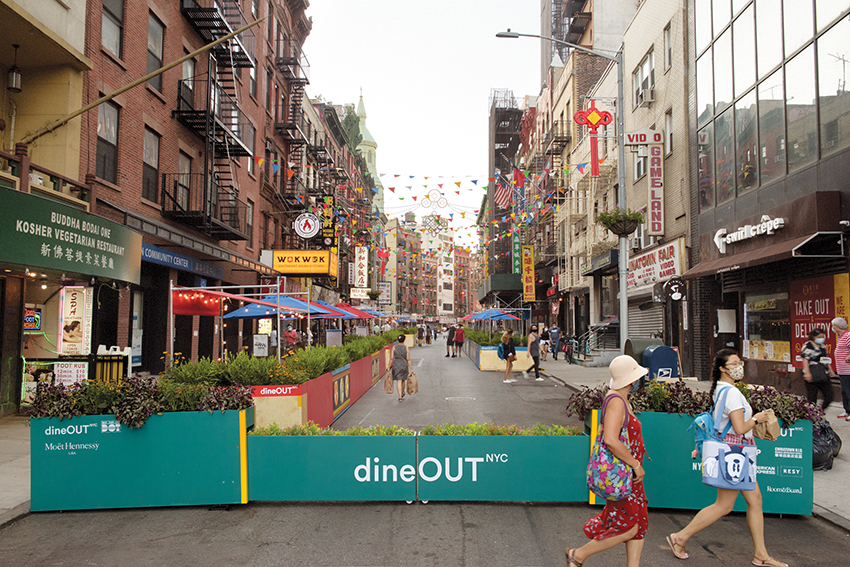
As the devastating effects of the COVID-19 pandemic continue to reshape many aspects of New York, the city’s Chinese neighborhoods in Manhattan and Queens have been particularly affected. Some customers had earlier abandoned these important shopping and dining districts, perhaps fearing that the virus would be arriving from China and be prevalent at Chinese-owned businesses. As it turns out, according to a Mt. Sinai study, most of the viral strain initially affecting New Yorkers could be traced to Europe.
And while restaurants in other neighborhoods have quickly responded to take advantage of the city’s Open Restaurants program, the independent family-owned restaurants in Chinatown are struggling to adapt. The inequity of resource distribution in relief programs, the current and future instability of food systems, and the high property taxes and commercial rents all contribute to the city’s failure to adequately support Chinese neighborhoods. Manhattan’s Chinatown has been especially hard hit, and we are now seeing the effects: decades-old restaurants like Hop Shing, Amazing 66, and Golden Mandarin Court shut down this summer. “The streetscape in Manhattan’s Chinatown is definitely more challenging: outdoor dining was not a common practice in Chinatown previously, and, since the business downturn here started in January, business owners have additional cash flow challenges,” explains Yin Kong, co-founder and director of Think!Chinatown, a non-profit whose mission is to build an intergenerational community through neighborhood engagement, storytelling, and the arts in Manhattan’s Chinatown.
Think!Chinatown has also collaborated with design studio A+A+A to form the Assembly for Chinatown initiative to create outdoor dining options for the neighborhood’s restaurants. The initiative fosters a grassroots approach of designing for and with communities. The group uses locally sourced materials to support neighboring Chinatown businesses, and restaurant owners are included in every step of the design and construction. In tandem with coordinating build-outs, Assembly for Chinatown has created a free guidebook online in both English and Chinese for business owners. It includes shop drawings, design recommendations, local material sourcing, and NYC government guidelines.
To date, the group has built three outdoor dining sites: one at Sweethouse Drink and Desserts (67 Bayard), with a mural by artist Kat Lam; the second at Lanzhou Ramen (107 East Broadway); and a third at Royal Seafood (103 Mott), in collaboration with local contractors, artists Jennifer Paloma and Rose Wong, and more than 30 volunteers. “When I asked business owners why they weren’t building their outdoor dining, some said they weren’t sure how to build or what to build, but mostly that they didn’t want to sink any more money in the business at this time,” explains Kong. Indeed, she points out that one of their selected sites, 21 Shanghai House, unfortunately shuttered before it had the chance to build.
Leveraging New York City’s Open Streets initiative, Rockwell Group expanded its pro bono DineOut NYC concept (see “Street Smarter,” Oculus, Summer 2020), which initially launched with six pilot installations in various boroughs to











